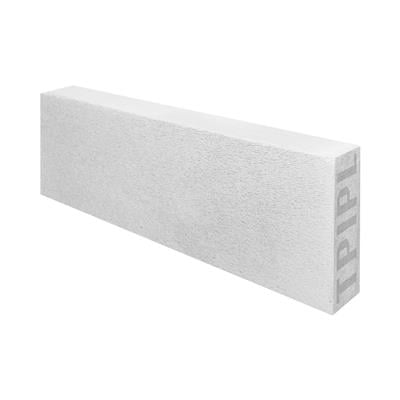The Benefits of Lightweight Concrete Blocks

Bricks are a fundamental building material that has been used for centuries in the construction of buildings and structures. Traditionally, bricks were made from clay and sand (clay bricks) or sand and cement (concrete blocks). However, these traditional bricks are heavy and can retain heat, which can be a problem in certain climates. Lightweight concrete blocks were developed to solve these problems. In this article, we would like to introduce lightweight concrete blocks as another popular option for construction.
Lightweight concrete blocks are a popular type of brick that has been developed for use in modern construction. They offer improved properties over traditional bricks and are a viable alternative for construction projects. Lightweight concrete blocks are made by mixing various ingredients such as cement, lime, sand, gypsum, aluminum powder, and water. The mixture is then poured into a mold and allowed to undergo a chemical reaction that creates tiny air bubbles, accounting for up to 75% of the block's volume. This results in a lower concrete content, making lightweight concrete blocks significantly lighter than other types of bricks of the same size.

AAC Brick TPI Size 20 x 60 x 7.5 CM. White
The standard dimensions of lightweight concrete blocks are width 20 centimeters, length 60 centimeters, thicknesses ranging from 7.5 centimeters to 20 centimeters, and it can support up to 35 kilograms per square centimeter. In addition, lightweight concrete blocks can be cut to a smaller size, using a lightweight concrete block saw or an electric reciprocating saw.
Benefits of Lightweight Concrete Blocks
In addition to being lightweight as its name suggests, the advantages of lightweight concrete blocks can be summarized as follows:
1. Meet the Standards, Strong and Durable: Lightweight concrete blocks are produced from high-quality components using modern manufacturing processes and advanced scientific research. This results in blocks that are strong, durable, and of consistent size. This helps to reduce problems during construction, makes it easy to build walls, and saves a significant amount of time.

2. Reduce Structural Load: Since lightweight concrete blocks are much lighter than traditional clay bricks, the load that the structure must bear is also reduced. This helps to reduce long-term problems caused by prolonged weight loading. Additionally, the chances of structural deterioration are also reduced.

3. Heat Insulation: The 75% air voids in lightweight concrete blocks are vacuums, so they do not conduct heat. When used to build walls, they prevent heat from outside from entering the interior. This reduces the heat inside the house and saves electricity costs from using air conditioners.

4. Fire Retardant: This property is a direct result of the heat insulation properties of lightweight concrete blocks. The air voids within the blocks prevent heat from entering the interior of the block, which reduces the chances of it catching fire. This limits the damage in the event of a fire.

5. Sound Absorption: In addition to heat insulation, the air voids within lightweight concrete blocks also have sound absorption properties. When sound waves encounter the air voids, they are unable to continue traveling and are instead absorbed by the brick. This helps to reduce noise pollution from outside.

Additional Considerations for Lightweight Concrete Blocks
1. High Price: With the many advantages mentioned earlier, lightweight concrete blocks are more expensive than other types of bricks on the market, such as clay bricks and concrete blocks. This means that the construction budget will also be higher.
2. Requires Special Mortar: Lightweight concrete blocks require the use of special lightweight concrete blocks mortar for construction. This mortar is designed to accommodate the expansion and contraction of lightweight concrete blocks and ensure a strong bond. Using regular mortar can result in weak walls.
3. Limitations in Customization: Lightweight concrete blocks are less customizable than other types of bricks due to their large size. This makes it difficult to use them for applications other than walls.
Hope that the information about lightweight concrete blocks that we have presented in this article will help everyone make a more informed decision when choosing lightweight concrete blocks. However, if you are still undecided, I recommend that you take the time to weigh the following factors in your mind: purpose of use, budget, construction time and benefits of use.
Credit for images: leca.co.uk, eckart.net, faswall.com, mcarthuraudiology.com
• You can buy Lightweight Concrete Blocks at our stores or online shopping. Click
Other interesting Articles:
Recommended products














